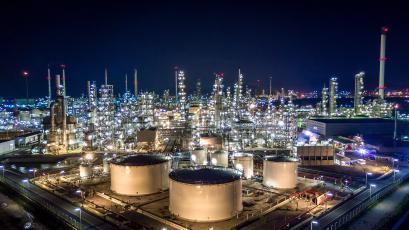AFPM welcomes the Environmental Protection Agency’s (EPA’s) efforts in developing a Draft National Strategy to Prevent Plastic Pollution, but consistent with comments submitted to the Agency, we urge a revision of their strategy. To prevent plastic pollution, we encourage EPA to embrace policies that enable, not hinder, a circular economy for plastics where we use a range of technologies and strategies to recover post-consumer plastic and transform it back into usable materials. Achieving circularity in the United States will require consistent, rational policies that improve waste management, embrace technology and innovation, and incorporate solutions across the entire plastics value chain.
Unfortunately, the EPA’s Draft National Strategy places heavy focus on plastic production, even though it is post-consumer management of plastic that is the real issue. Also absent from the strategy is any meaningful role for advanced recycling.
Advanced recycling, as a complement to mechanical recycling, has potential to increase recycling rates, help consumer brands meet ambitious recyclability and recycled content targets, reduce plastic pollution and displace plastics derived from virgin feedstocks. AFPM urges EPA to view and consider advanced recycling as a solution to plastic pollution, not a problem. In addition, we’ve asked the Agency to reflect the following in their next draft:
- Recognize that plastics are critical to a sustainable future and essential for EPA’s mission to protect human health and the environment.
- Support innovation in all segments of the plastics life cycle—including those specifically focused on advanced recycling—and encourage the shift to a circular economy for plastics.
- Acknowledge that plastic production is not a large source of overall plastic pollution and, instead, focus on improving post-consumer materials management and infrastructure as required by the Save Our Seas 2.0 Act.
AFPM members are at the forefront of the plastics circularity movement as innovators and collaborators. Petrochemical companies support research and development on recycling technologies, enter joint ventures and partnerships for advanced recycling and post-consumer recycled feedstock projects, support municipal recycling facility improvements on collection and sorting, and collaborate elsewhere along the value chain, including on product design to maximize recyclability. AFPM member companies, their operations and products are highly regulated and monitored both domestically and globally, and our members participate in initiatives above and beyond their regulatory requirements to combat plastic pollution.
AFPM members are committed to collaborating with policymakers and other stakeholders to develop sound, risk- and science-based policies to address environmental issues, including the adverse impacts of plastic pollution caused by mismanaged post-consumer plastic. AFPM members have actively supported, and continue to support, policies designed to protect the environment, decrease emissions, incentivize recycling and promote research and development in recycling technologies. By supporting such policies AFPM members strive to achieve a truly circular economy that creates, conserves and circulates value from petrochemical-derived plastics.
AFPM is the leading trade association representing the manufacturers of base petrochemicals that are the essential building blocks for plastic products that improve the health, safety and living conditions of humankind and make modern life possible. AFPM members are committed to sustainably manufacturing the petrochemicals and derivatives for plastics that growing global populations and economies need to thrive, improving and innovating product design and recycling to improve reuse rates, and developing policies and technologies to address plastic pollution.
The American Fuel & Petrochemical Manufacturers (AFPM) is the leading trade association representing the makers of the fuels that keep us moving, the petrochemicals that are the essential building blocks for modern life, and the midstream companies that get our feedstocks and products where they need to go. We make the products that make life better, safer and more sustainable — we make progress.


